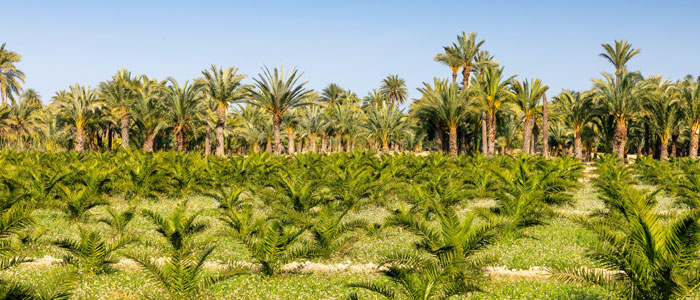-
Wealth Management
-
-
Low Limit Credit Cards
-
Debit Cards
-
Prepaid Card
-
ICSAB+
-
Finance
-
Help & Support
-
-
Help & Support
-
Cards
-
-
-
Tools & Resources
-
Ways to Bank
-
Help & Support
-
ESG at SAB
-
Security
-


Frequently Asked Questions
Have questions about SAB banking services? Let us help you with these frequently asked questions.
FAQSCustomer Service
Our friendly Customer Support team are on hand to help with any queries you have. We're here to help!
Contact UsQuick Links

SAUDI AFFIRMS ITS CLIMATE COMMITMENTS

Saudi Arabia is set to invest over SAR 6 billion in environmental compliance projects by the end of 2030, a testament to the leadership’s unwavering commitment to environmental development as underlined in Vision 2030, according to Eng. Mansour Al Mushaiti, vice minister of environment, water and agriculture.
Speaking during the Environmental Compliance Forum held in Riyadh, Al Mushaiti also highlighted the ministry's proactive approach by initiating the National Environment Strategy in 2016, and implementing sustainable solutions with private sector participation. The forum, a first of its kind, aims to foster co-operation in building a sustainable environment, preserving natural resources, and enhancing quality of life.
Pointing to a 2014 World Bank study, Al Mushaiti stressed the staggering cost of environmental degradation, exceeding SAR 86 billion. Protecting the environment, he said, is imperative for ensuring security in environment, food, and water, and driving economic prosperity.
In another endeavour, the National Center for Vegetation Cover Development and Combating Desertification (NCVC) has embarked on a monumental project to rehabilitate 620,000 hectares of degraded land in Saudi Arabia.
Utilising rainwater harvesting techniques, the project seeks to enhance vegetation cover across nine regions in the country. Through comprehensive studies and field visits, NCVC seeks to understand root causes of land degradation, catalogue existing plant species, recommend suitable restoration methods, and determine optimal planting strategies.
Aligned with the objectives of Saudi Vision 2030, the project underscores the kingdom’s commitment to sustainable development and environmental conservation. Rainwater harvesting, a key component of the initiative, encompasses various techniques such as dam construction, reservoir utilisation, and well installation to maximise water resources and combat desertification.
RIYADH COP16
Meanwhile, Saudi Arabia and the United Nations underscored the importance of global co-operation in halting land degradation during a discussion organised by the Ministry of Environment, Water and Agriculture. The session, titled 'The Road to Riyadh COP16', highlighted the kingdom's forthcoming hosting of the 16th session of the Conference of the Parties (COP) to the United Nations Convention to Combat Desertification (UNCCD) in December 2024.
Dr. Osama Faqeeha, undersecretary of the Ministry for Environment, outlined Saudi Arabia's commitment to environmental preservation and sustainable development. He emphasised the Green Saudi Initiative (GSI), aimed at cultivating 14 million hectares of land, and international collaborations such as the Middle East Green Initiative (MGI), and the Global Initiative on Reducing Land Degradation.
Andrea Murillo, deputy executive secretary of the UN Convention to Combat Desertification, stressed the necessity of collective action to safeguard the Earth. She praised Saudi Arabia's efforts in environmental conservation, noting the potential to recover 30% of degraded land, thereby enhancing food and water security.
Dr. Ayman Ghulam, chief executive offcer at the National Center of Meteorology (NCM), highlighted Saudi Arabia's proactive measures in climate resilience, including the establishment of the Sand and Dust Storm Warning Regional Center, one of only four such facilities in the world that employs advanced technology to forecast sandstorms with up to 95% accuracy. This demonstrates the kingdom's commitment to environmental stewardship and proactive climate management.
WORLD ENVIRONMENT DAY
Riyadh is also gearing up to host the World Environment Day on 5 June, which will focus on land restoration, desertification, and drought resilience.
As a nation grappling with degradation, desertification, and drought, Saudi Arabia is deeply committed to finding solutions, launching measures like the Saudi Green Initiative and the Middle East Green Initiative. Globally, Saudi Arabia's leadership was evident during its presidency of the G20, resulting in the adoption of the Global Land Restoration Initiative.
This proactive stance is crucial amid the intensification of the triple planetary crisis: climate change, biodiversity loss, and pollution. Land degradation affects billions of hectares worldwide, impacting nearly half of the global population and endangering half of the global GDP, with rural communities and smallholder farmers bearing the brunt.
However, there is hope in land restoration, which can reverse the trend of degradation, drought, and desertification. Every dollar invested in restoration can yield up to USD 30 in ecosystem services, improving livelihoods, reducing poverty, and enhancing resilience to extreme weather events. In addition, restoration efforts aid in carbon sequestration, mitigate climate change effects, and preserve biodiversity.
Addressing the drivers of land degradation, including climate change, is paramount. Last year's unprecedented temperature records emphasises the urgent need for climate action. Restoring land while neglecting climate change would be counterproductive. Therefore, G20 nations, including Saudi Arabia, are keen to demonstrate leadership across the climate agenda.
Countries have pledged to restore one billion hectares of land, a commitment that could have significant global impacts. Through its hosting of World Environment Day and the upcoming UN Convention to Combat Desertification, Saudi Arabia aims to galvanise momentum towards achieving restoration goals, combating climate change, preserving nature, and improving livelihoods worldwide.
Your are now leaving this site
Your are now leaving this site
You are about to leave this site. You are being redirected to an external site. Would you like to leave this site?
© SAB, Saudi Arabia. All Rights Reserved, 2025
Saudi Awwal Bank, a listed joint stock company, incorporated in the Kingdom of Saudi Arabia, with paid in capital of SAR 20,547,945,220, commercial registration certificate 1010025779, unified number 7000018668, Mailing Address: P.O. Box 9084, Riyadh 11413. National Address: 7383 King Fahad Branch Rd, 2338 Al Yasmeen Dist., 13325 Riyadh, Kingdom of Saudi Arabia, Tel. +966 11 4050677, www.sab.com, licensed pursuant to the Council of Ministers Resolution No. 198 dated 06/02/1398H and Royal Decree No. M/4 dated 12/08/1398H, and regulated and supervised by the Saudi Central Bank.